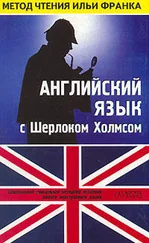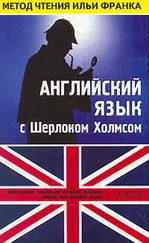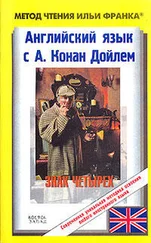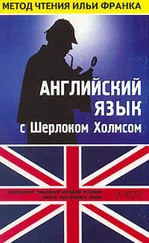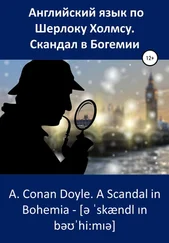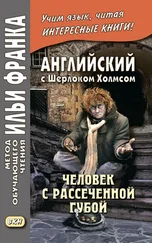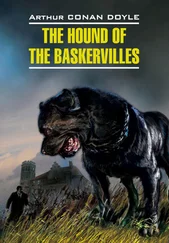overwhelm [ˌǝuvǝˈwelm], fallen [ˈfɔ:l(ǝ)n], shining [ˈʃaɪnɪŋ]
We stood with bitter hearts on either side of the mangled body, overwhelmed by this sudden and irrevocable disaster which had brought all our long and weary labours to so piteous an end. Then, as the moon rose, we climbed to the top of the rocks over which our poor friend had fallen, and from the summit we gazed out over the shadowy moor, half silver and half gloom. Far away, miles off, in the direction of Grimpen, a single steady yellow light was shining. It could only come from the lonely abode of the Stapletons. With a bitter curse I shook my fist at it as I gazed.
"Why should we not seize him at once (почему бы нам не схватить его сразу) ?"
"Our case is not complete (наше дело не завершено = нам не хватает доказательств) . The fellow is wary and cunning to the last degree (этот человек осторожен и хитер до последней степени) . It is not what we know (/главное/ — не то, что мы знаем) , but what we can prove (а что мы можем доказать) . If we make one false move (если мы сделаем одно неверное движение) the villain may escape us yet (злодей может еще и сбежать от нас) ."
"What can we do (что мы можем сделать) ?"
"There will be plenty for us to do to-morrow (нам много нужно будет сделать завтра) . To-night we can only perform the last offices to our poor friend (сегодня ночью мы можем только совершить над нашим другом погребальный обряд; to perform the last offices — совершать погребальный обряд: «последние службы/обряды») ."
Together we made our way down the precipitous slope (вместе мы спустились вниз по крутому склону; to make one's way — продвигаться, направляться) and approached the body (и приблизились к телу) , black and clear against the silvered stones (темному и четкому на фоне серебрившихся камней) . The agony of those contorted limbs (/при виде/ этих в мучениях скрюченных членов) struck me with a spasm of pain (у меня от горя перехватило дыхание; to strike — ударять; поражать; pain — боль; горе) and blurred my eyes with tears (и глаза наполнились: «затуманились» слезами) .
"We must send for help, Holmes (мы должны послать за помощью, Холмс) ! We cannot carry him all the way to the Hall (мы не сможем всю дорогу нести его) . Good heavens, are you mad (Господи Боже, вы с ума сошли) ?"
He had uttered a cry and bent over the body (он издал вопль и склонился над телом; to bend) . Now he was dancing and laughing and wringing my hand (теперь он танцевал, смеялся и жал мне руку) . Could this be my stern, self-contained friend (мог это быть мой строгий, сдержанный друг) ? These were hidden fires, indeed (да, вот какие /в нем/ скрывались страсти; fire — огонь; страсть, неистовость; indeed — в самом деле, действительно; выражание сомнения, удивления и т. п.) !
"A beard! A beard! The man has a beard (борода, у этого человека борода) !"
"A beard?"
"It is not the Baronet (это не баронет) — it is — why, it is my neighbour, the convict (это — Боже мой — это мой сосед, каторжник) !"
With feverish haste we had turned the body over (с лихорадочной поспешностью мы перевернули тело; fever — лихорадка) , and that dripping beard (и эта пропитанная /кровью/ борода; dripping — капающий; мокрый, промокший) was pointing up to the cold, clear moon (была направлена /теперь/ на холодную, ясную луну = торчала вверх/была задрана к луне) . There could be no doubt about the beetling forehead (не могло быть сомнений насчет этого низкого лба; to beetle — нависать, выдаваться) , the sunken animal eyes (/и/ глубоко запавших звериных глаз; sunken — затонувший; впалый) . It was, indeed, the same face (несомненно, это было то лицо) which had glared upon me in the light of the candle from over the rock (которое смотрело на меня при свете /стоящей/ на скале свечи) — the face of Selden, the criminal (лицо Сэлдэна, преступника) .
prove [pru:v], precipitous [prɪˈsɪpɪtǝs], wring [rɪŋ]
"Why should we not seize him at once?"
"Our case is not complete. The fellow is wary and cunning to the last degree. It is not what we know, but what we can prove. If we make one false move the villain may escape us yet."
"What can we do?"
"There will be plenty for us to do to-morrow. To-night we can only perform the last offices to our poor friend."
Together we made our way down the precipitous slope and approached the body, black and clear against the silvered stones. The agony of those contorted limbs struck me with a spasm of pain and blurred my eyes with tears.
"We must send for help, Holmes! We cannot carry him all the way to the Hall. Good heavens, are you mad?"
He had uttered a cry and bent over the body. Now he was dancing and laughing and wringing my hand. Could this be my stern, self-contained friend? These were hidden fires, indeed!
"A beard! A beard! The man has a beard!"
"A beard?"
"It is not the Baronet — it is — why, it is my neighbour, the convict!"
With feverish haste we had turned the body over, and that dripping beard was pointing up to the cold, clear moon. There could be no doubt about the beetling forehead, the sunken animal eyes. It was, indeed, the same face which had glared upon me in the light of the candle from over the rock — the face of Selden, the criminal.
Then in an instant it was all clear to me (потом через мгновенье мне все стало ясно) . I remembered how the Baronet had told me (я вспомнил, как баронет говорил мне) that he had handed his old wardrobe to Barrymore (что он отдал свой старый гардероб Бэрримору) . Barrymore had passed it on in order to help Selden in his escape (Бэрримор передал его Сэлдэну, чтобы помочь скрыться; escape — побег, бегство) . Boots, shirt, cap — it was all Sir Henry's (ботинки, рубашка, кепка, — все это было сэра Генри) . The tragedy was still black enough (трагедия была достаточно драматичной: «мрачной») , but this man had at least deserved death (но этот человек и так заслужил смерть; at least — по крайней мере) by the laws of his country (по законам нашей страны) . I told Holmes how the matter stood (я рассказал Холмсу, как обстоит дело) , my heart bubbling over with thankfulness and joy (мое сердце /при этом/ переполнялось благодарностью и радостью; to bubble over — переполняться, кипеть /от эмоций/; bubble — пузырек /в воде или другой жидкости, наполненный воздухом или газом/) .
Читать дальше

